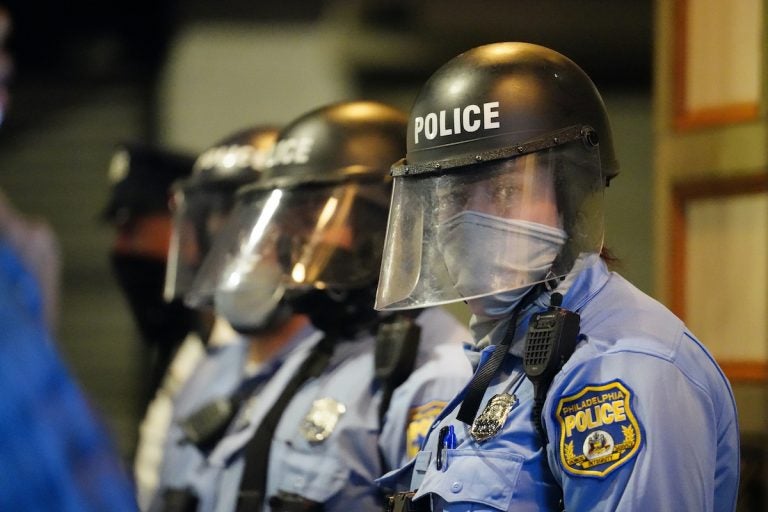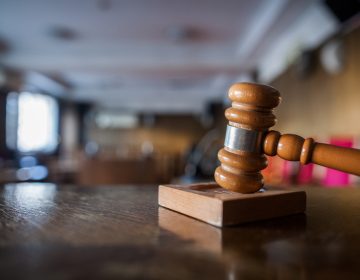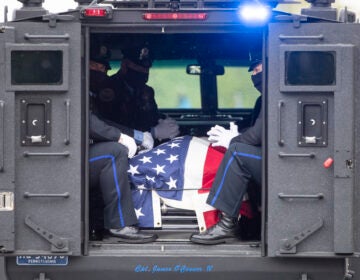Qualified immunity, police violence and healing from trauma
Should qualified immunity, the doctrine that protects the police from civil lawsuits, be ended?
Listen 49:15
Philadelphia police stand in position during a march by protesters Tuesday Oct. 27, 2020 in Philadelphia. Hundreds of demonstrators marched in West Philadelphia over the death of Walter Wallace, a Black man who was killed by police in Philadelphia. (AP Photo/Matt Slocum)
Calls for police reform have recently focused on the issue of qualified immunity, a doctrine which has been used to shield police from lawsuits. That’s one of the issues that’s held up a bipartisan police reform bill in Congress. We start this hour with Villanova professor TERI RAVENELL on the history of qualified immunity, how it’s been used to protect officers, and why it needs to be changed. Then, police violence and gun violence have long-lasting effects on individuals and communities even after the wounds have healed. We’ll talk with JOCELYN SMITH LEE, a professor at the University of North Carolina, Greensboro, and with Drexel University’s JOHN RICH about healing people hurt from violence and racial trauma.

Subscribe for more Radio Times
WHYY is your source for fact-based, in-depth journalism and information. As a nonprofit organization, we rely on financial support from readers like you. Please give today.





